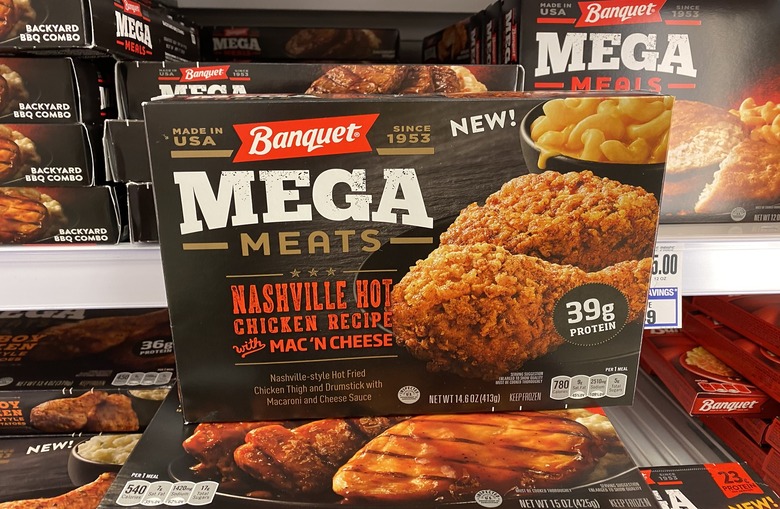Are Frozen Meals Healthy? Here's How To Tell
Frozen meals have been popular since they were first introduced in the 1940s. Convenient and easy, most everyone has had at least one meal from the freezer aisle, if not more. In fact, for a lot of people, they're a daily staple for work lunches or dinner on the go. They have also become a popular item that many people are stocking up on amid the current coronavirus pandemic.
Can Coronavirus Spread Through Food? And Other COVID-19 Food Questions Answered
Some meals are better than others, however, and before you head to your favorite grocery store, there are a few things to keep in mind when choosing a frozen meal.
Though many brands promote their meals as "healthy," it's important to check the label's nutrition information to get a better idea of just how healthy they actually are.
"While calories can matter, it's not the first thing that I look at on these because most of them are under 350, 400 calories, which is appropriate for a meal for most people," said Molly Kimball, a registered dietician with the Ochsner Health Fitness Center in New Orleans.
Instead, Kimball suggests reviewing the label for other things like sodium levels, which can be high in frozen or processed foods, even ones that are labeled as "healthy."
While the daily recommended max is 2,300 milligrams of sodium, the American Heart Association suggests sticking closer to 1,500 milligrams, which is better for blood pressure and heart health. Many frozen meals add extra salt for flavor, making it essential to check first before buying.
Kimball also said to look for the ratio of protein to carbohydrates.
"Carbs are cheap, the starches are cheap," she said. "The protein and the vegetables tend to be the pricier stuff, so I like to see with that ratio, how much protein am I getting for how much carb?"
A good rule of thumb, Kimball said, is 20 grams of protein to 30 grams of carbohydrates.
Finally, check the ingredients to see what's listed and in what order. It's important to look for meals that list vegetables, meats or proteins and other healthy ingredients first, instead of things you've never heard of, which can be found in both the unhealthiest and healthiest frozen dinners.
